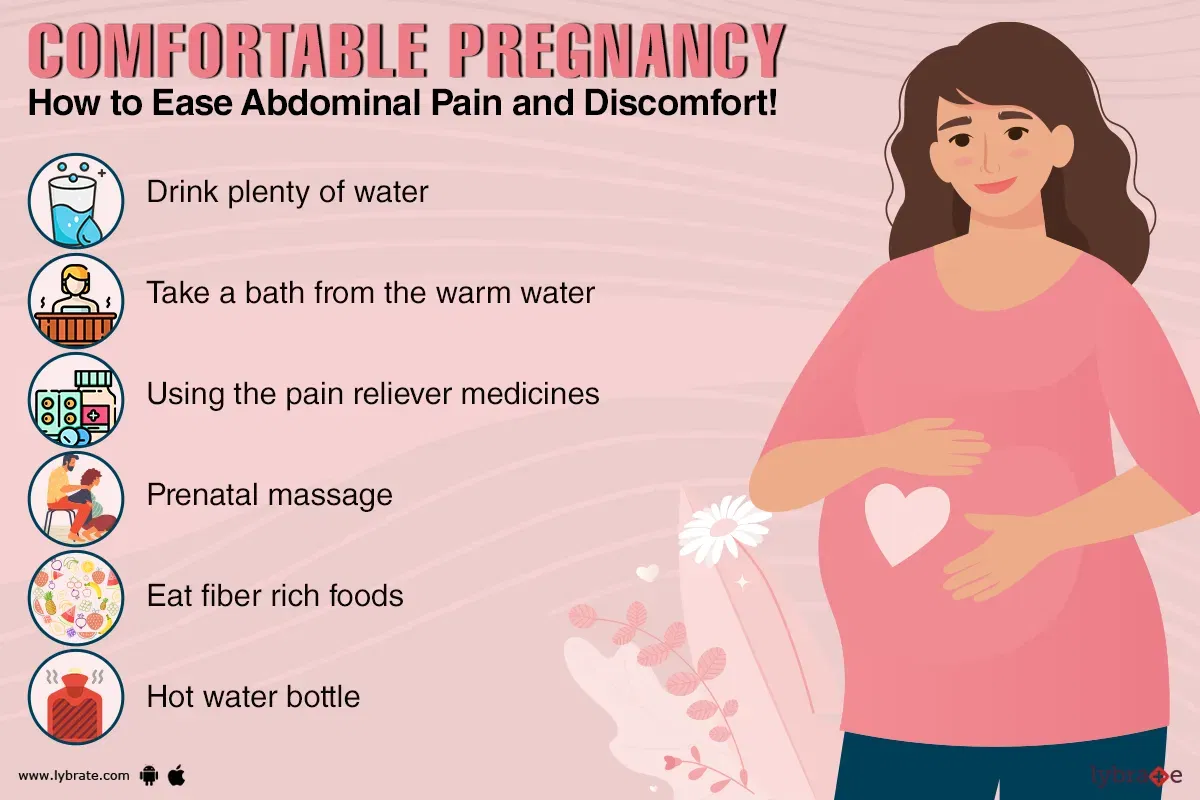
Abdominal Pain During Pregnancy: Causes, Management, and When to Seek Medical Attention
Abdominal pain is a common complaint during pregnancy, affecting up to 80% of women. While most abdominal pain is mild and resolves on its own, it can occasionally be a sign of a more serious underlying condition. Understanding the different causes of abdominal pain during pregnancy and knowing when to seek medical attention is crucial for ensuring a healthy pregnancy.
Causes of Abdominal Pain During Pregnancy
- Round ligament pain: As the uterus expands during pregnancy, the round ligaments that support it stretch and can cause sharp, stabbing pains in the lower abdomen or groin area. This pain typically occurs in the second trimester and is usually worse with sudden movements or coughing.
- Gas and bloating: Hormonal changes during pregnancy can slow down digestion, leading to gas and bloating. This can cause discomfort and pain in the abdomen.
- Constipation: Pregnancy hormones can also relax the muscles of the digestive tract, leading to constipation. Hard stools can put pressure on the intestines and cause abdominal pain.
- Urinary tract infection (UTI): UTIs are common during pregnancy due to changes in the immune system and increased pressure on the bladder. They can cause burning or pain during urination, as well as abdominal pain.
- Preeclampsia: This condition, characterized by high blood pressure and protein in the urine, can cause severe abdominal pain in the upper right quadrant. It is a serious complication that requires immediate medical attention.
- Placental abruption: This is a condition in which the placenta separates from the uterine wall before delivery. It can cause sudden, severe abdominal pain and vaginal bleeding.
- Ectopic pregnancy: This occurs when the fertilized egg implants outside the uterus, usually in the fallopian tube. It can cause abdominal pain, vaginal bleeding, and shoulder pain.
Management of Abdominal Pain During Pregnancy
- Rest: Resting can help relieve pain caused by round ligament pain or gas and bloating.
- Warm compress: Applying a warm compress to the abdomen can help soothe pain.
- Sitz bath: A sitz bath, which involves sitting in a tub of warm water, can help relieve pain caused by hemorrhoids.
- Over-the-counter pain relievers: Acetaminophen (Tylenol) is generally considered safe for use during pregnancy to relieve mild to moderate pain.
- Diet: Eating a healthy diet, including plenty of fiber, can help prevent constipation and gas.
- Pelvic floor exercises: Strengthening the pelvic floor muscles can help support the uterus and reduce round ligament pain.
When to Seek Medical Attention
Seek medical attention immediately if you experience any of the following symptoms along with abdominal pain:
- Severe or persistent pain
- Pain accompanied by vaginal bleeding
- Pain accompanied by fever or chills
- Pain that is sudden and severe
- Pain that is accompanied by nausea or vomiting
- Pain that does not improve with home remedies
Diagnosis and Treatment
Your doctor will perform a physical exam and ask about your symptoms to diagnose the cause of your abdominal pain. They may also order tests such as:
- Ultrasound
- Blood tests
- Urine tests
Treatment for abdominal pain during pregnancy will depend on the underlying cause. For example, round ligament pain may not require any treatment, while a UTI will require antibiotics.
Prevention
While not all abdominal pain during pregnancy can be prevented, there are some steps you can take to reduce your risk:
- Exercise regularly to strengthen your pelvic floor muscles.
- Eat a healthy diet to prevent constipation and gas.
- Drink plenty of fluids to stay hydrated.
- Avoid lifting heavy objects.
- Get regular prenatal care to monitor your pregnancy and identify any potential problems early on.
Conclusion
Abdominal pain during pregnancy is a common complaint, but it is important to be aware of the potential causes and when to seek medical attention. By understanding the different types of abdominal pain, managing it effectively, and knowing when to seek medical help, you can ensure a healthy and comfortable pregnancy.